Mission 2008 (tortugas 3)
(Justin's Page)


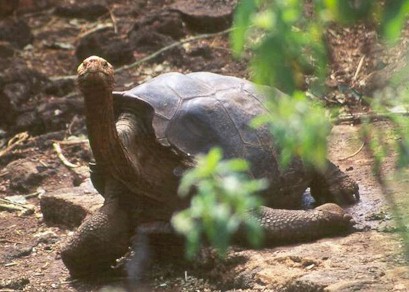
Hello, and Welcome to my website.
Before getting to the main body of the webpage, I'd like
to comment that I have had virtually zero experience doing websites or with
computers so it may look a little sloppy. (please bear with it). Below
are entries of my research and thoughts. Some of my research is available
only through the hyperlink from the shortened entries. Some useful
portals are at the bottom of the website. Enjoy everyone.
Justin
Lee
Q: Where are the Galapagos? A:In East of Ecuador, on the Equator
(Our inlands were Santa Cruz and Santiago)
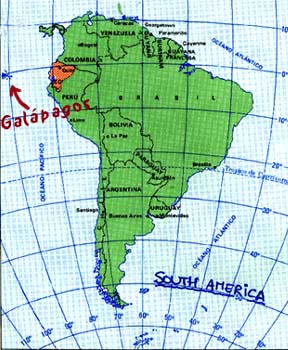 --->
--->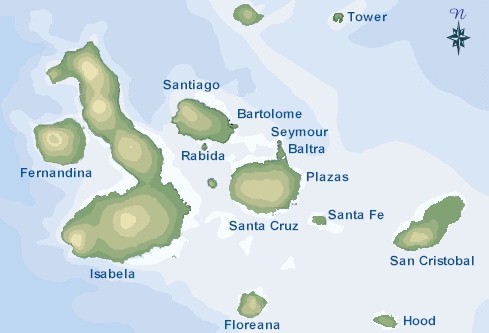
Galapagos National Park Fees if you wish to go:
Foreign Tourists non-residents of Ecuador over 12 years of age. $100
Foreign Tourists non-residents of Ecuador under 12 years of age. $50
Foreign Tourists non-residents of Ecuador over 12 years of age. Nationals
of one of the countries participating in the Andean Community of Nations
or Mercosur. $50
Foreign Tourists non-residents of Ecuador under 12 years of age. Nationals
of one of the countries participating in the Andean Community of Nations
or Mercosur. $25
National Tourists or Foreign Residents of Ecuador over 12 years of age $6
National Tourists or Foreign Residents of Ecuador under 12 years of age $3
Tourists non-resident foreign students registered at one of the National
Universities of Ecuador. $25
(Photos and information from Galapagosonline.com and the Darwin
Foundation)
What I've been doing:
(Prior to Oct.1, 2004)-->Available
Here
as well
Found general facts regarding the status quo Galapagos Marine
Reserve.
--> Founded in 1998 after the marine protected area off the
coast of the galapagos islands was changed from 15 to 40 nautical miles.
-->authority over the reserve granted to the Galapagos National
Park Service (the national park was actually established earlier---yr?);
multi-sector management board established with both members of the GNPS
and GMR users.
-->UN declared Galapagos a Cultural Heritage site
in 2001.
Article Except: ( The Committee's mission in
the months between the recommendation and the decision on the declaration
is to assess the attitude of the countries that host the candidate sites,
particularly the government's stance with respect to the management of the
reserve or site to be declared Heritage of Humanity.
To demonstrate the Ecuadorian government's support for the project,
President Noboa presented the "Galapagos Strategy 2010" at the end of November,
an initiative that focuses on preserving the archipelago's biodiversity.
"Galapagos Strategy 2010" has financial backing from several countries
and multilateral organization like the Inter-American Development Bank (IDB),
the Global Environment Facility (GEF -- a unit of the United Nations Development
Program), the Andean Development Corporation and the Spanish Agency for
International Cooperation.
The governmental plan will begin with the launching of an environmental
management program, which has financing of 13 million dollars from the
IDB, and with the program to control non-native species on the islands,
with $ 18.3 million from GEF.)--Kintto Lucas; IPS-Inter
Press Service. "GALAPAGOS RESERVE DECLARED HERITAGE SITE "; 12/16/01;
pLexis
--> Note: i don't think any of this ever materialized.
. and isn't the president different now too?
--> Current Law allows only "traditional" fishing methods for protected
areas in the Galapagos--this was protested, early this year, with fishermen
demanding use of semi-industrial techniques in the protected areas around
the archipelago. Ecuador promised to "study" the fisherman's claims
and will probably give in to their demands
-->http://www.darwinfoundation.org/articles/n5900049816.html
"THE SPECIAL LAW FOR GALÁPAGOS" by Robert Bensted-Smith -->Outlines
some Laws.
-----------------------------------------------------------------------------------------------------------------------------------------------------------------------------------------------------------------------------------------------------------------------------------------------------------------------------------------------------------------------------------
Past--> Current happenings of the Islands
-->Isabella-(invasive species: Ex: Goats--kill off
trees by rubbing horns against tree-trunks. Impact: Tortoises
are Baking to death.); there is currently a project to restore Alcedo
(Alcedo is the largest Volcano on Isabella---Isabella was originally 6
separate active volcanoes--5 remain active today)
-->Santiago Island--> Success with elimination of
Wild Pigs. There is fear that if there is any let-up in effort, however,
the burgeoning of invasive species will occur.
-->Other invasive species include goats, wasps, fire ants,
agressive plant species (blackberry, guava, elephant grass, cinchona),
and anis (birds who like to eat Darwin's finches)
--> There is a CURRENT STRICT SYSTEM OF QUARANTINE, but it's underfunded--an
"unborn baby"<--est. cost is $6million--Ecuador doesn't have this.(W/o
this program, Ecuador is in trouble.)
-->Oil Spill occured near the Galapagos in 2001, but the
system rebounded okay.
Through 1990s, large market for Sea Cucumbers (Asia) and Shark
Fins. (still is high demand)
Shark Finning could have negative repercussions for tourism, as many
tourists come to scuba dive to see the sharks.
--> Up until early 2004, the Ecuadorian Air Force (FAE) had
claimed (and given by the courts) jurisdiction/outright ownership
over Baltra Island. This motion rejected by Ecuadorian Congress
March of 2004)
-->Dolphin Death Video in 2002 filmed 70 dead and injured dolphins
in the nets of a ship fishing illegally in the GMR. The US increased
the import tariff rate fo tuna. (the Captain of the boat was only
fined 4 cents and 4 weeks in "jail"--aboard his own boat).
-->Two-way radio installed in 2000 in remote locations (up the
mountains, etc) of the Galapagos--very instrumental in preservation.
----------------------------------------------------------------------------------------------------------------------------------------------------------------------------------------------------------------------------------------------------------------------------------------------------------------------------------------------------------------------------------------
Random Facts:
-->The Galapagos are home to about 1,000 fishermen who
have migrated from Ecuador's mainland
currently a limit of 60,000 annual visitors to the Galapagos/year.
-->Scientists want fishermen to SWITCH TO the tourism sector,
but 1. the fishermen don't like being "forced" into "servitude" (a service
sector job) and 2. benefits to them are likely to be minimal, since tourism
is still largely through CRUISE SHIPS. (very polluting)
----------------------------------------------------------------------------------------------------------------------------------------------------------------------------------------------------------------------------------------------------------------------------------------------------------------------------------------------------------------------------------------
Current events and happenings.
-->(Sept 13, 2004) President Guitierrez replaces Edwin Naula
with Fausto Cepeda (new park director. . sympathetic to local fishermen--wants
to increase harvesting of sea cucumbers). -->Park rangers angry
because they view him as anti-environmentalist. (Also, the rangers are
on strike and haven't recieved paycheck for 2 months b/c International
NGOs withheld funding in anticipation of Naula's removal)-->backlash
by fishermen-->hurl rocks at park rangers and destroy park entrance
on Santa Cruz.
--> It was opined that frequent changes in Park Director (Cepada
is the 9th park director since Jan 2003) make ecosystem conservation
problematic. (constant change in policy gets nothing done--deadlock,
the pendulum is swinging back and forth. . . )
-->Luxembourg pledges to invest in the DEVELOPMENT of
the Galapagos Islands (4/7/04); through the CHARLES DARWIN FOUNDATION.
Articles cited:
LatinNews Daily ’04 (9/23/04; “ECUADOR: Tension and violence
in the Galapagos”; pLexis)
National Post ’04 (“Galapagos park rangers walk off the job: Employees,
activists protest replacement of park director by political appointee”)
Global Newswire ’04 (3/26/04) (BBC Monitoring international reports)
Text of unattributed report: "Congress rejects decision to turn Baltra
over to FAE" published by Ecuadoran newspaper El Universo web site on 24
March
Latin America News Digest '04 (April 7, 2004, “ Luxembourg
Seen To Invest in Development of Ecuadorian Galapagos Islands”)
The Associated Press '04 (May 28, 2004, Friday, BC cycle, International
News, 265 words, Galapagos Island fishermen halt protest against catch limits,
QUITO, Ecuador)
The Ottawa Citizen '99 (Don Butler) April 04, 1999; “The Galapagos:
Part 3: Can paradise be pulled from the brink?”
NYT ’00 (12/27/00) “Where Darwin Mused, Strife Over Ecosystem”
IPS-Inter Press Service '00 (December 16, 2001, Monday, 956 words,
ENVIRONMENT-ECUADOR: GALAPAGOS RESERVE DECLARED HERITAGE SITE By Kintto
Lucas, QUITO, Dec. 16)
U.S. Newswire '02 (July 23, 2002 Tuesday, National Desk, Environmental
Reporter, 677 words, Video of Dolphin Deaths Highlights Continued Threat
to Galapagos Marine Reserve from Illegal Fishing, WASHINGTON, July 23)
U.S. Newswire '02 (August 19, 2002 Monday, National Desk, Environment
Reporter, 475 words, WWF And The Government Of Ecuador Agree On Common Agenda
To Work For The Conservation Of The Galapagos Islands, WASHINGTON, Aug. 19)
IPS-Inter Press Service '98 (February 18, 1998, Wednesday,
752 words, ECUADOR-ENVIRONMENT: CONFLICT OVER GALAPAGOS HEATS UP AFTER VETO,
By Mario Gonzalez, QUITO, Feb. 18)
Environment News Service '00 (August 2, 2000, 482 words, GALAPAGOS
BETTER PROTECTED THANKS TO TWO WAY RADIO)
Latin America Regional Reports '98 (Andean Group, January 27, 1998,
ECUADOR; Environment; RA-98-01; Pg. 3, 495 words, Galapagos law passed just
in time; CAMPAIGNERS HAIL VICTORY FOR SUSTAINABLE DEVELOPMENT)
The Economist '04 (March 6, 2004, U.S. Edition, THE AMERICAS,
306 words, Fishing for trouble; The Galapagos Islands Conservation under
threat)
----------------------------------------------------------------------------------------------------------------------------------------------------------------------------------------------------------------------------------------------------------------------------------------------------------------------------------------------------------------------------------------
-->Week of Oct 1st. research
on remote sensing and surveillance methods.
[Ecosystem
Monitoring]<--click here for the link of my research on remote sensing
and surveillance.
---------------------------------------------------------------------------------------------------------------------------------------------------------------------------------------------------------------------------------------------------------------------------------------------------------------------------------------------------------------------------------------
--> Week of Oct 7th.
I found an article today that was pure gold. Ryan P. Lessman writes in
the Colorado Journal of International Law and Policy. (p117)
EXACTLY about a similar problem we're facing (though he takes a slightly
different approach)
<insert the lnk of the article--> i'll have to put it on
another website and link to it, but i don't know if that would be legal.
.>
Of interest to me in the article was the "current policies" section.
(Note: i think the author is mistaken in that Gutierrez (and not Naboa) is
the current president of Ecuador)
Summaries/Excerpts of current policies in effect in the Galapagos
described in the article.:
1. Ecuador's policies
-->nothing new, but the article notes the extreme difficulty Ecuador
has with ENFORCING/(and i snidely comment "wanting to enforce") its policies.
2. The Galapagos National Park (Government Agency founded along with
Charles Darwin Foundation in 1959)
-->approves all itineraries of boats visiting the islands to make sure
tourism is evenly distributed throughout the islands, -->controls actions
with the Marine Reserve, and coordinates with the Fisheries Ministry and
the Navy.
-->Visitors (to the Park) pay a $ 100 fee, but 60%+goes to a general
"Ecuadorian government fund" (as opposed to directly to the park
--> the Park does not control pollution discharges from passing
ships. -->it cannot under rules of ILAW (International Law)
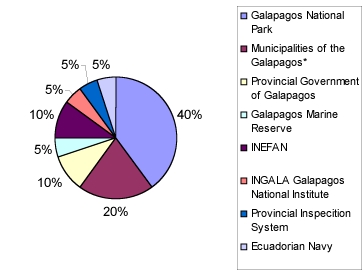 -->Where the Park fess Go. . .. (Data
from Galapagosonline.com)
-->Where the Park fess Go. . .. (Data
from Galapagosonline.com)
3. The Charles Darwin Foundation (approx. 200 scientists who monitor
the islands and advises the Ecuadorian government. No authority to
make or enforce laws. Short on Funding.)
-->Duties include:
"a) Operating its international field research center in the Galapagos,
the Charles Darwin Research Station (CDRS), including staff-operated applied
conservation research programs and promotion and [*132] facilitation
of research conducted by scientists from all over the world; b) advising
the Ecuadorian government on the design of appropriate policies and programs
for conservation of the archipelago; c) conducting public environmental education
programs at local, national and international levels; d) training of Ecuadorian
scientists and resource managers; and e) seeking and channeling financial
and technical support from a wide variety of international and bilateral
organizations, both public and private. n109"(Lessman 2004)
--> The Author opines that SHIPPING DISCHARGE is the greatest current
threat to the Galapagos b/c there are currently NO regulations against it.
4. Status as a UNESCO World Heritage Site
-->"As detailed above, the Galapagos Islands and surrounding Marine
Reserve are designated UNESCO World Heritage sites. Although the Convention
provides for protections of enlisted sites, actual protection is not by
any means guaranteed. n112 Once a site is placed on the World Heritage List,
the country that nominated it may receive financial assistance from the World
Heritage Fund to preserve the site. . .(Lessman 2004) . [NOTE:
they only receive funding, actual protection is suspect.]
while the inclusion of the Galapagos on the World Heritage List both highlights
the importance of the islands and affords them some protection, the Convention
has no power to prevent individual violations, such as pollution from ships.
In addition, the World Heritage Fund is under-funded. "(Lessman
2004)
5. Convention on Biodiversity
"The Convention "rejected "hard' environmental obligations that are
legally binding for non-legal exhortations, and highly qualified "soft' commitments."
n127 Moreover, the Convention places most of the responsibility for protective
initiatives on the host country."(Lessman 2004)
"If Ecuador fails to institute all the necessary measures to prevent
destruction of biodiversity, other Parties will not likely be able to hold
it liable under the Convention on Biological Diversity because the language
of the Convention is very amorphous, and therefore, essentially non-binding."
. . . (Lessman 2004)
BUT, then he notes. . . "The very principle that dulls the Convention's
teeth - that is, diluted obligations imposed on developing countries - may
be the [*137] principle that aids the Galapagos. In fact, the
Convention states that the "extent to which developing country Parties will
effectively implement their commitments under [the] Convention will depend
on the effective implementation by developed country Parties of their commitments
under [the] Convention related to financial resources and transfer of technology...
." n143 Article 20 of the Convention states that developed countries
are to help developing countries by providing them with the new and additional
financial resources and relevant technologies they need in order to implement
the Convention. n144 Like UNESCO, this language does not impose affirmative
duties on member countries. Therefore, whether Ecuador and the Galapagos
will receive sufficient support from developed countries remains to be seen.
Even so, while additional resources might help solve Ecuador's funding dilemma,
its overall enforcement issue would remain unsolved."
6. LOST /UNCLOS
(Law Of the Sea)
-->Note: Ecuador has not SIGNED the treaty (therefore, isn't really
bound by it) and the US has SIGNED but hasn't RATIFIED it, so we will likely
have trouble telling someone to comply to the rules. (2nd note: we didn't
ratify the LOST b/c of the deep-seabed mining provisions, but we still generall
follow all the other LOS provisions, but the fact that we havent ratified
the treaty as a whole makes it still weak international law)
-->Notes that the LOS does NOT give a country rights to block a ship
from simply transitting the water within its 200 mile EEZ (he opines too
that this is a large cause of the pollution--discharge near the coastlines
and within the EEZ)
"States have the right to develop their own resources under UNCLOS.
n156 Article 194 establishes this right, as does Part V, which provides for
an Exclusive Economic Zone (EEZ). n157 An EEZ is a 200-mile area wherein
the coastal state has the sovereign rights to explore and exploit, as well
as to conserve and manage, marine resources. n158 Importantly, this
provision does not give a country the right to completely block ships from
passing through its EEZ. n159 However, this provision is more forceful
than similar ones from the Convention on Biological Diversity, as development
under UNCLOS must be done in accordance with a State's "duty to protect
and preserve the marine environment." n160 Because UNCLOS is customary
international law, States may enforce Ecuador's duty to protect its marine
environment should it fail to do so." (Lessman 2004)<--THIS
IS INTERESTING. .
Also, one of Ecuador's challenges in protecting the Galapagos, and
the environment generally, is a lack of funding.
"The most significant limitation of UNCLOS in Ecuador's case
is that a port state may not take preventative measures to stop operational
discharges of international ships within its EEZ. n167 For instance,
under UNCLOS, Ecuador may not require ships within its EEZ to have an Ecuadorian
pilot familiar with the waters around the Galapagos on board to ensure safe
passage. n168 Nor can it require all ships within its territory to be double
hulled, helping to prevent detrimental accidents. n169 These important pitfalls
of UNCLOS will be discussed in the later section arguing that the Galapagos
should be declared a PSSA."(Lessman 2004)
7. IMO/MARPOL (International Maritime
Organization; MARPOL is the name of 2 conventions for the Prevention of
Pollution from Ships)
--> from what i gleaned, the biggest problem with the policy here is
"Enforcement of MARPOL stems primarily from the accurate certification
of member States that their own ships are in compliance [*145]
with the treaty. n209 Such enforcement is called flag state jurisdiction.
n210 MARPOL also provides for port state jurisdiction, which allows a state,
such as Ecuador, to "undertake investigations of vessels within its ports."
n211 The port state may either prosecute the violation or report it to the
flag state. n212 "If reported to the flag state, the flag state then has
discretion to prosecute the violation. This is one of the major problems
with enforcement of MARPOL, because the country prosecuting the case incurs
the resulting legal expenses." n213 As a result, countries usually simply
report violations to the flag state."
I know that many shipping companies simply carry "Flags of Convenience"
chooshing to flag under VERY LENIENT flag states such as Liberia and
Panama.
What the Author Recommends.
He says Ecuador should be Designated a PSSA (There
are 5 currently: the Great Barrier Reef, Australia(1990); the Sabana-Camaguey
Archipelago, Cuba (1997); the Florida Keys, United States (2002); the Wadden
Sea area, Northern Europe (2002); and Malpelmo Island, sweden (2002))
//Article gives a slew of things that being a PSSA would do, contends
that the Galapagos would meet the criterion of one, and closes by stressing
how much the Galapagos would benefit by being a PSSA--while i think the recommendations
sound very good, i don't think we're going to be copying this idea (for
one, it only really applies to marine biodiversity and for two, it doesn't
answer our problem of establishing a new park/protected area around the
islands), so i keep it short--but if there you're interested, we can delve
into it more.//
---------------------------------------------------------------------------------------------------------------------------------------------------------------------------------------------------------------------------------------------------------------------------------------------------------------------------------------------------------------------------------------
-->Oct 8th.
I've decided i will stay in this class for the time being and attempt to
post weekly (at least) weblog of my thoughts on the Galapagos/our discussion
on the Galapagos. (sorry i couldn't make wednesday-i went to go see Wilczek
speak) Of particular note was Kip's comments Tuesday about the upsides and
downisdes of International involvement in the marine preserve.
Based on what I've read and what I understand, it seems like it will be difficult
for us to establish an International Biopreserve on the Galapagos--The US
has no precedence in leading on environmental issues (haven't ratified Kyoto
or Law of the Sea Treaty), no jurisdictional grounds for intervention
in the Galapagos, and enforcement is suspect. However, a PSSA
(described here) does have precedence and could potentially be useful and
pragmatic. I'm really wondering about the feasibilty of all of our
plans. I like to think that i know a little bit about how policies
work and i think that it will prove a formidable task to get unique solutions
done. In addition, it seems like the Galapagos (the Ecuadorian Government)
is already CURRENTLY receiving substantial funding from many many many countries
including Italy, Switzerland, the US, and many multi-national NGOs.-->this
in some effect and to some degree makes it "international" already--anything
we do could only be viewed as somewhat imperialistic by forcing Ecuador to
cede some of its power.
---------------------------------------------------------------------------------------------------------------------------------------------------------------------------------------------------------------------------------------------------------------------------------------------------------------------------------------------------------------------------------------
-->Oct 11th-->
Monitoring.. GPS envirosats or in-situ monitoring? Perhaps the
best comes from a combination of both see [monitoring research] Satellites
seem like they could be very useful in monitoring things like EUTROPHICATION,
disasters like oil spills and water temperature adn cholorphyll levels.
---------------------------------------------------------------------------------------------------------------------------------------------------------------------------------------------------------------------------------------------------------------------------------------------------------------------------------------------------------------------------------------
--> Oct. 13th. In
class today we (tor3) posed the question "What might appease Ecuador in
exchange for partial cessation of sovereignty over the Galapagos? [do not
say $]"--It seemed like a pretty difficult question to answer. In
reality, we may need some creative brainstorming to think of an answer.This
i think is key.. . what does Ecuador want?
---------------------------------------------------------------------------------------------------------------------------------------------------------------------------------------------------------------------------------------------------------------------------------------------------------------------------------------------------------------------------------------
-->October 18. We
are focusing UNIQUELY on building a biopreserve (with environmental
sensors) and an "ecovillage"---nothing else. Sometimes I think people
in the class get all caught up with what they've read and have learned that
they forget that, "wait a minute--if you've read it--isn't it just talking
about how it's in the Galapagos already? or Wait... if it's not in the Galapagos,
why don't you think it's in the Galapagos (and don't say just $$) Do you
think enforcement could be easily circumvented? (Especially since a recent
study ranks Ecuador in the top 10 most corrupt countries in the world. .
) But back to uniqueness. . . this means... volcano monitoring is NOT
part of our mission---scientists are already doing that.......... it's not
in our SPECIFIC realm to deal with that. //Furthermore--with regard
to the #1 natural threat to the islands, tsunamis... at their rate of conduction,
you can't really have mass evacuation of cities (buoys give some leeway but
not really) . . . 3, 2, 1. . a tsunami can hit and wipe out much life (giant
tsunamis related with seabed instability have been shown to have wiped out
huge populations in Australia in the past) My point is, if a giant
tsunami is really going to wipe out the Galapagos, then we really can't do
much about that anyways--we're better off focusing our study and energy on
PRAGMATIC solutions that are RELEVANT to our specific mission--like controls
on what tankers/pilots can travers Galapagos waters or developing a more
effective enforcement mechanism or oversight committee for the Galapagos.
---------------------------------------------------------------------------------------------------------------------------------------------------------------------------------------------------------------------------------------------------------------------------------------------------------------------------------------------------------------------------------------
October 25. Kip made
an interesting comment in class today about whales and other species icons.
"Why are they valued so much? Why are they the ones monitored and tagged?"-->Kip
argued that they were easier to tag. On top of the "symbols of environmental
conscienceness" and "rallying point for the environmental movement" points
i made in class today, i also think whales are a unique KEYSTONE SPECIES.
While if could be argued that overpopulation of certain whale species
might lead to a "whale Malthus" that might be detrimental, the opposite is
more likely--death of whales and degradation of ecosystems, (krill Malthus
b/c loss of whales, decrease in geochemical cycling, burgeoning of killer
whales-->killing off things like kelp and sea lions). But speaking
of Keystone species--What Keystone Species might there be in the Galapagos?
(BTW, the phrase "keystone species derives from a arch bridge's keyston--which
basically holds the whole bridge together and if removed the bridge will
crumble. . . )
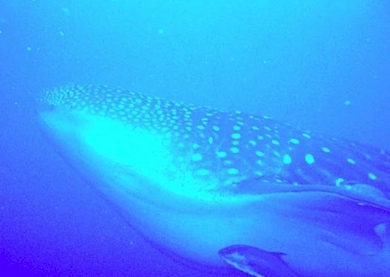
---------------------------------------------------------------------------------------------------------------------------------------------------------------------------------------------------------------------------------------------------------------------------------------------------------------------------------------------------------------------------------------
October 26--29.Did research
on the economy of the islands--our team is down to 4 people total..
....
Galapagos
Economy
---------------------------------------------------------------------------------------------------------------------------------------------------------------------------------------------------------------------------------------------------------------------------------------------------------------------------------------------------------------------------------------
For my Team and anyone else interested in it:
So also, here are the portals i promised:
-->www.darwinfoundation.org--this is a good website, as the Charles
Darwin Foundation is doing the bulk of the work in current preservation.[It
was contracted by the gov't of Ecuador some 40 years ago to provide scientific
input for the management of the Park (http://www.darwinfoundation.org/terrest/terrest.html
for terrestial systems on the islands, and http://www.darwinfoundation.org/marine/sealion.html-->note
the right hand side of that page.. MULTIPLE LINKS to things like POLICY,
ARTICLES CONCERNING THE GALAPAGOS,etc. . )
-->http://www.gct.org/intro.html-- website with general bkgrnd
info on the Galapagos. (for quick summaries, visit the kids section)
**An Excerpt that might potentially help the person working on history
(i know it's not of the specific island, but that might be difficult to find--but
the first line was interesting--> NO ABORIGINAL HISTORY)
"Galapagos had no aboriginal inhabitants and was only officially
discovered in 1535 by Tomas de Berlanga, the Bishop of Panama, when his
ship was becalmed and carried there by currents. During the 17th and 18th
centuries, buccaneers and pirates used the islands as a staging post, stocking
up on water and giant tortoises which they stowed alive on board their ships
for fresh meat, before carrying out raids on the South American coast. During
the 19th century whalers and fur sealers further exploited the islands.
Galapagos was annexed by Ecuador in 1832 and small colonies were gradually
established on several of the islands. In the 1930's several mysterious
deaths and disappearances among the European community on the island of
Floreana put Galapagos in the news. Most of the present-day inhabitants
moved to the islands from the Ecuadorian mainland during the last 20 years
- until the Special Law for Galapagos was passed the population was increasing
at more than 8% per annum."
-->www.lexis-nexis.com/universe--> useful search engine.
most of the news articles i got come from the news search here and the law
review article i found was from here too. The good thing about this search
engine is that the full texts are always there (it's a little annoying in
proquest when the text of the articles aren't there)
-->http://www.galapagosonline.com/Islands/islands/Santa_Cruz/Santa_Cruz.html
http://www.galapagosonline.com/Islands/islands/Santiago/Santiago.html
--> basic information on santa cruz--> note:
the information is from a tourist company
(Check out their lnks under "Natural History", on the LHS toolbar as
well--there is good information under there)
From the http://www.geo.cornell.edu/geology/GalapagosWWW/Discovery.html-->galapagos
history
http://whc.unesco.org/sites/1bis.htm
http://www.american.edu/projects/mandala/TED/ecuador.htm
. . and the article notes "Statistics on the amount of money Ecuador
uses for environmental measures are hard, if not impossible, to find. Perhaps
the best demonstration of the amount of money Ecuador spends on its money
is the fact that their environment is in such degradation. One can also see
by analogy, however, that Ecuador does not spend much money in protecting
its environment. For example, a TED case study indicates that Ecuador's dependence
on its oil revenue "has hindered Ecuador's environmental enforcement."
-->this is info perhaps on Ecuador's economy (and some extra might
be found on generic websites on Ecuador); The Galapagos economy. . . .fishing
and tourism--that's about it...
---------------------------------------------------------------------------------------------------------------------------------------------------------------------------------------------------------------------------------------------------------------------------------------------------------------------------------------------------------------------------------------
Justin Lee
Next House #430
(832)-971-8284
500 Memorial Drive
Cambridge, MA 01239




 --->
--->
 -->Where the Park fess Go. . .. (Data
from Galapagosonline.com)
-->Where the Park fess Go. . .. (Data
from Galapagosonline.com)